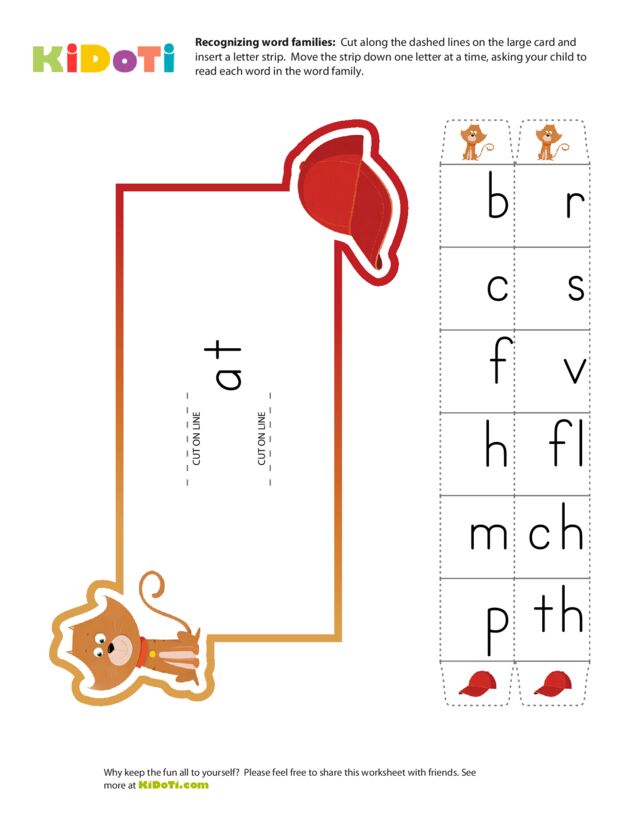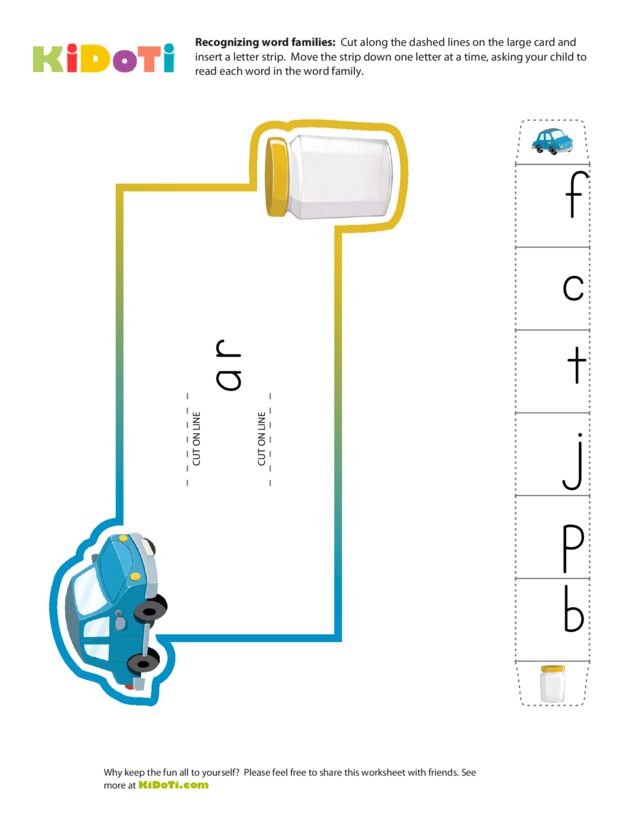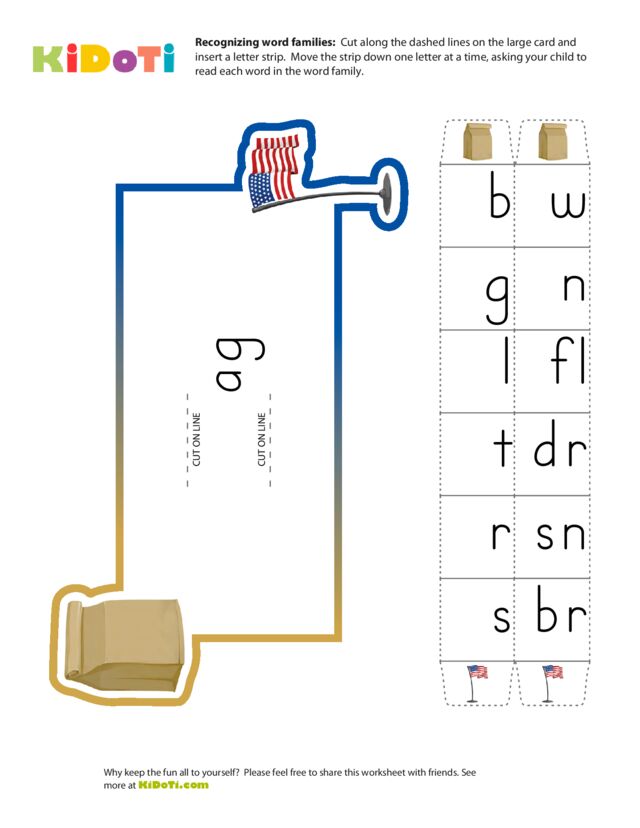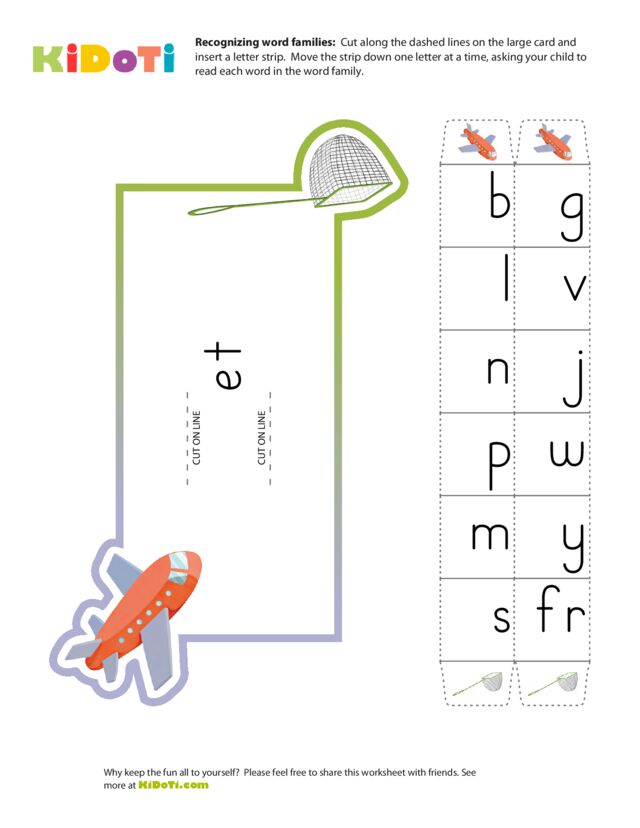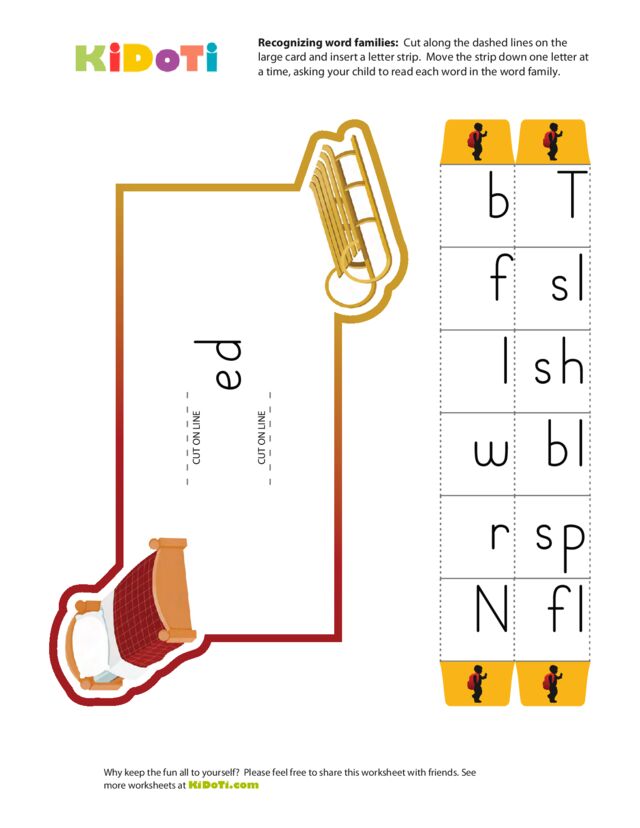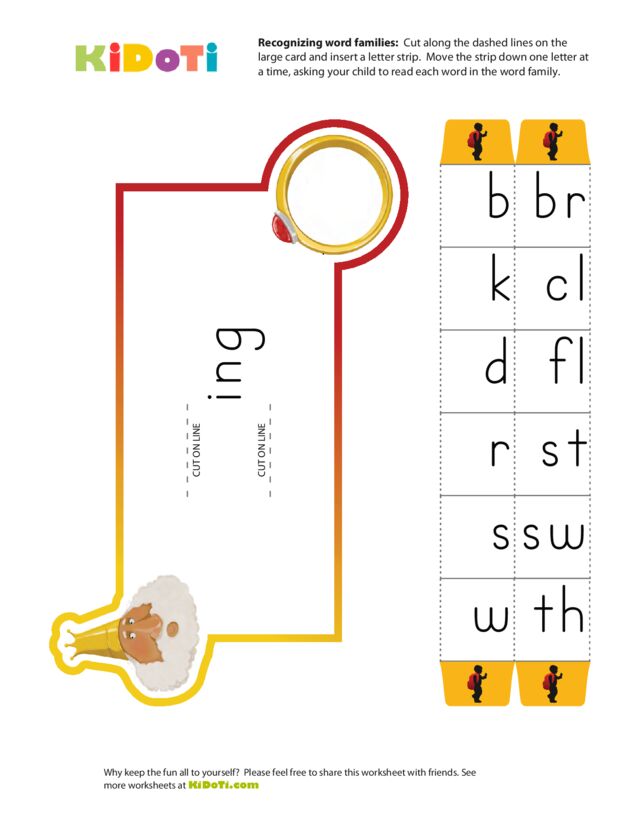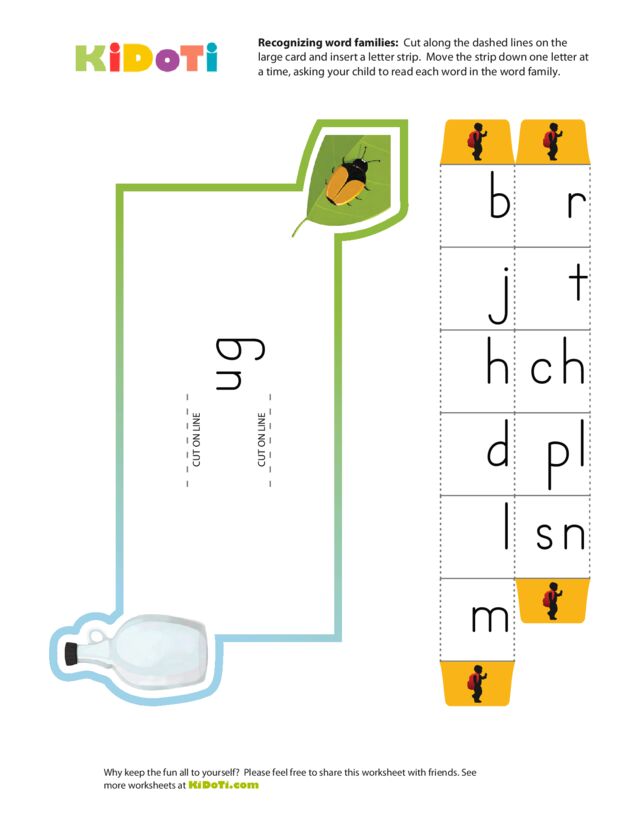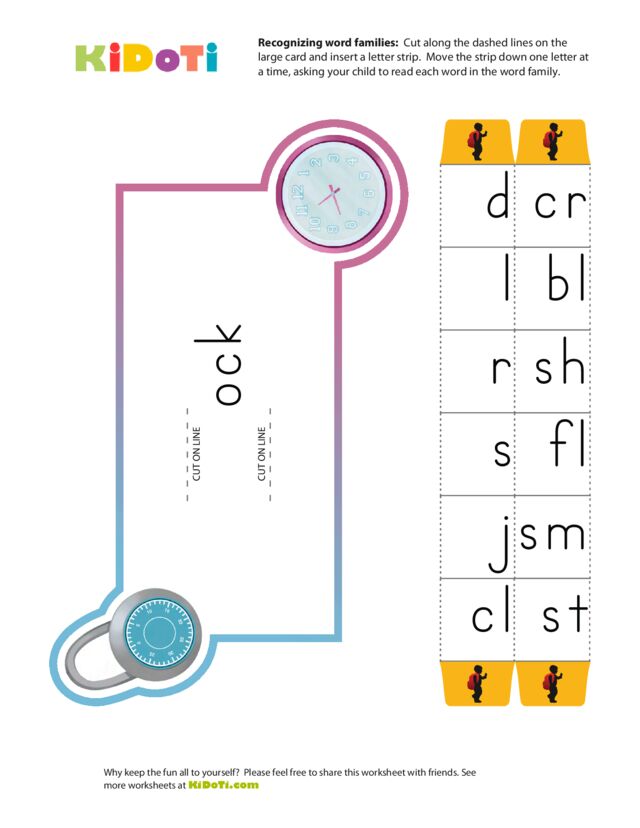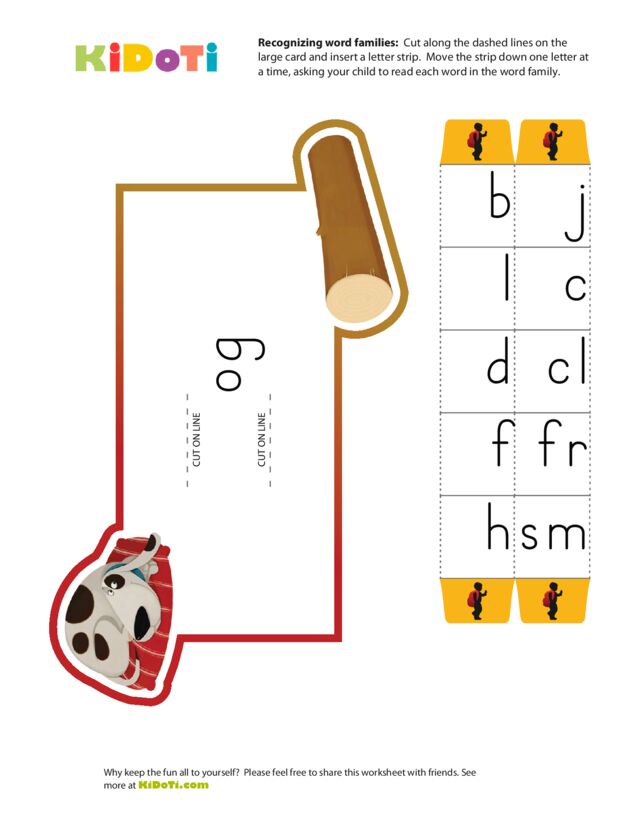Word families are groups of letters that are frequently seen together, such as -at which appears in the words at, cat, hat, rat, bat, pat, sat, fat, mat, and vat. When children can recognize word families, they are able to sound out only the first letter of an unfamiliar word and then apply the sound made by the rest of the word family to quickly and easily read the entire word. The following worksheets contain word family sliders for the 10 most common word families. Cut out the word family card and the letter strip and then feed the letter strip through the designated slits on the word family card. By moving the letter strip up or down, your child will be able to quickly learn these common word families
What are word families
Word families are groups of words that have a common segment of letters at the end. The words in a word family rhyme, of course, and new words are created by switching the letter or letters of the word. Knowing word families makes reading smoother and easier, since a child can look at the end of a word in the word family and read that word by simply adding the appropriate beginning sound.
Word families are typically indicated by a hyphen followed by the letter grouping (-ag, for example, would represent the word family that includes the words bag, tag, lag, and flag).
Common word families list
There are many word families in the English language. Some word families may have only three or four words in the word family whereas other word families may have 15 or more words in the word family. A list of 10 common word families used by young children includes:
- The -an word family;
- The -at word family;
- The -ag word family;
- The -ar word family;
- The -ed word family;
- The -et word family;
- The -ing word family;
- The -ock word family;
- The -og word family; and
- The -ug word family;
Tips for helping your child learn common word families
While many children can identify rhyming words, being familiar with an entire word family greatly increases reading fluency and speed since it allows children to quickly spot familiar letter combinations. An easy way to introduce children to word families is with word family sliders, which contain a letter strip that is fed through two slits to quickly create a variety of words in a single word family. The worksheets on this page are designed to be cut out to create word family sliders.
To begin using a word family slider, copy the worksheet page on tag board or paste it on heavy-weight paper to make it more durable. Then cut out the word family slider as well as the letter strip(s) that accompany each word family. To help keep the materials organized if you are printing out more than one word family at a time, it helps to print the word family (-at or -og, for example) on the back of the letter strip so the letter strips can be easily associated with the correct word family.
Cut on the dashed lines of the word family slider so you can slip the letter strip through the slits. The easiest way to cut the dashed lines is to open the blades of a pair of scissors and (using a piece of cardboard behind the word family slider to make sure you don’t cut through to your table) use one blade of the scissors as you would use a knife to cut along the dashed line.
Introduce the word families by asking your child to read the word family segment on the slider. Next show him the letter strip and ask him to tell you the sound that each letter makes. Then slowly move the letter strip up or down to show your child a new word in the word family. He will likely recognize that the words all rhyme and will have fun reading new words quickly. Encourage your child to read the words smoothly, as a true word, rather than isolating the beginning sound from the word family segment (such as saying buh-ag for the word bag). If he does separate the beginning sound when saying the new word, simply ask him to read the word once more as smoothly as he can.
Extra word family activities to try at home
- Pretend the letter strip from a word family slider is a zipper. Move it up and down as your child reads the words. Set the timer for one minute and see how many times you can “zip” the letter strip up and down while your child reads each word.
- Get silly and swap the letter strips from two different word families. As your child reads the nonsense words that are created when a letter strip is put into a different word family slider, he will be getting some fun reading practice. Ask him to identify which words are real and which are nonsense words.
- When reading a rhyming book, ask your child to pick one of the rhyming words and write the ending letter segment on a card to create a new word family. Cut slits in front of the letters and use some of the letter strips to make new real and nonsense words.
